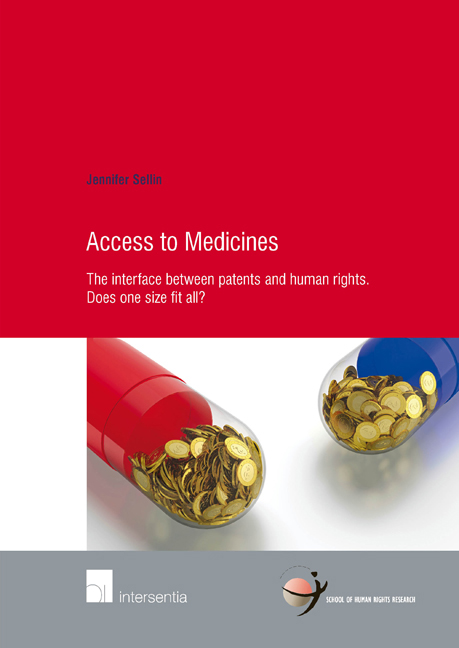Book contents
- Frontmatter
- Dedication
- Acknowledgements
- Contents
- List of Abbreviations
- Part I Method and Problem Statement
- Part II International Framework
- Part III Country Studies
- Chapter 6 Access to Medicines in South Africa
- Chapter 7 Access to Medicines in India
- Chapter 8 Access to Medicines in Uganda
- Chapter 9 Findings, Conclusions and Recommendations
- Bibliography
- Curriculum Vitae
- Miscellaneous Endmatter
Chapter 6 - Access to Medicines in South Africa
from Part III - Country Studies
Published online by Cambridge University Press: 22 November 2017
- Frontmatter
- Dedication
- Acknowledgements
- Contents
- List of Abbreviations
- Part I Method and Problem Statement
- Part II International Framework
- Part III Country Studies
- Chapter 6 Access to Medicines in South Africa
- Chapter 7 Access to Medicines in India
- Chapter 8 Access to Medicines in Uganda
- Chapter 9 Findings, Conclusions and Recommendations
- Bibliography
- Curriculum Vitae
- Miscellaneous Endmatter
Summary
INTRODUCTION
The first country study conducted in this research is on South Africa. It is classified as an upper middle income country with a GNI per capita of US$ 6.090 (2010); it has a poverty headcount ratio of 23% of the population, life expectancy of 52 years; and an under-five mortality rate of 56.6. South Africa is a WTO member since 1 January 1995. Although South Africa is one of the most developed and influential countries in sub-Saharan Africa, it is a country experiencing one of the worst HIV/AIDS epidemics world-wide. It is a young democracy with a progressive constitution protecting the right to health. This is also shown within case law of the South African Constitutional Court which has deemed the right to health to be justiciable and enforceable. Moreover, it has been involved in a conflict with the pharmaceutical industry over the issue of access to medicines, which was one of the first instances this issue received public attention. It is a good example of how an active civil society can reach tangible results in favour of access.
The previous chapters focused on the international framework with respect to a right of access to medicines and the patenting of pharmaceutical products. It was shown that there are a number of sources within international human rights law that protect a right of access to medicines, although in varying degrees. Furthermore, the TRIPS Agreement setting out minimum standards for patent protection for all WTO members attempts to strike a balance between IPRs and access. The flexibility of the TRIPS Agreement lies firstly in the fact that WTO members are free to determine the appropriate manner of interpretation and implementation of TRIPS’ obligations for themselves; and in that regard many of its provisions provide sufficient leeway to interpret these obligations in a flexible way, taking a right of access to medicines in account. Secondly, the TRIPS Agreement allows for concrete measures to curtail patent rights, such as compulsory licensing or parallel importation.
- Type
- Chapter
- Information
- Access to MedicinesThe Interface between Patents and Human Rights. Does one size fit all?, pp. 293 - 346Publisher: IntersentiaPrint publication year: 2014



